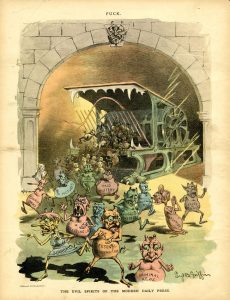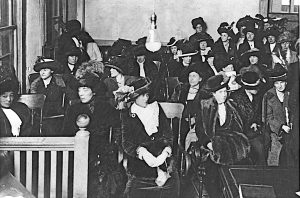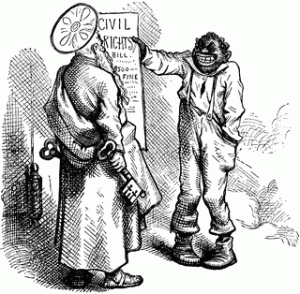On Originalism and the First Amendment

On October 18, 2018, I participated in a presentation entitled “Free Speech and Originalist Jurisprudence” at the University of Wisconsin-Stout along with Professor Alan Bigel (UW-Lacrosse). The event was part of Free Speech Week sponsored by the Center for Study of Institutions and Innovation. What follows is a copy of my prepared remarks.
“In December 1783, George Washington gave a toast at a dinner celebrating the formal dissolution of the Revolutionary Army. He did not use his toast to offer a tribute to individual liberty. Nor did he sing the praises of limited government. Instead, his toast was a simple expression of what he hoped the future would bring to our new nation. He raised his glass and he said: “Competent powers to Congress for general purposes.”
I wrote that in a 2012 blog post, and I received an immediate and angry response from a lawyer who denied that George Washington ever said such a thing, and who rejected the idea that George Washington ever supported a powerful national government. This well documented historical fact did not fit within the reader’s understanding of the original intent of our U.S. Constitution — and therefore the reader simply could not believe that the quotation could be accurate.
The response of this reader reflects the fact that, for many persons, originalism is primarily a culturally expressive theory – a theory that expresses a culture that reflects conservative political views, moral traditionalism, and a tendency towards libertarianism. (Jamal Greene, Nathaniel Persily & Stephen Ansolabehere, “Profiling Originalism,” 111 COLUMBIA L. REV. 356, 400-402 (2011)).
However, originalism as a theory was not invented in order to provide a vehicle for cultural expression. Instead, the goal of originalism is to provide an interpretive method for objectively defining the meaning of the U.S. Constitution.
Originalism is an interpretive theory that understands a legal text to retain the meaning it had at the moment when it was enacted or ratified, until such time as the law is amended or repealed. (Chris Cooke, “Textualism is Not Strict Constructionism is Not Originalism,“leastdangerousblog.com, July 8, 2018). It holds that the discoverable public meaning of the U.S. Constitution at the time of its initial adoption should be regarded as authoritative for purposes of later constitutional interpretation. (Keith Whittington, “Originalism: A Critical Introduction,” 82 FORDHAM L. REV. 375, 377 (2013)).
There is an abundant historical record supporting the conclusion that the United States Constitution was promoted by a core group of political leaders in order to strengthen the national government, and that the Constitution was understood by the people during the ratification debate to do just that.
In rejecting this historical record, the lawyer who responded to my blog post revealed that he was more devoted to his favored myth of original meaning than he was to objectively weighing the available evidence of actual meaning.


